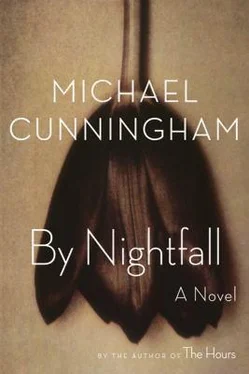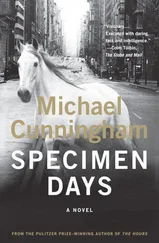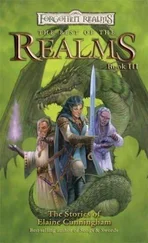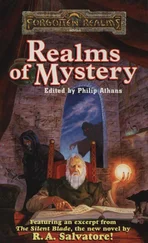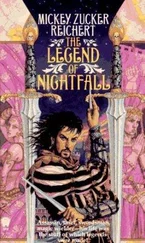Carole and Mizzy come and stand beside Peter. Carole says to Tyler and Branch, “Would you boys like some coffee and a snack when you’re finished?”
“Can’t,” Tyler answers. “We’ve gotta get right back on the road.”
“Thanks, though,” beams Branch. Odds are, he’s pissed at Tyler, too. Thanks for being rude to a rich old lady who buys art, motherfucker.
“So,” Peter says. “If you think you like it, live with it for a while, show it to the Chens, show it to some schnauzers, and we’ll talk.”
No pressure, not even a little.
“All right,” Carole says, “but I feel pretty sure. You know me, I’m not prone to indecision. I had doubts about the Krim from the beginning.”
“Please, please tell me I didn’t push you into it.”
“Peter Harris. No one, man or woman, pushes me into just about anything.”
She offers him a surprisingly lovely, tough-ironic smile. For a moment he sees her young, a rich girl whose rich parents (the money comes from the grandparents) had succeeded in one of the many American dreams: they’d raised a girl who was born to it, who knew how to ride horses and play tennis and flirt just enough with just the right men. In only three generations (the grandparents were the Grigs, of Croatia) they’d created a solid, pretty, capable girl who radiated athletic vivacity. Carole would have been pretty and fresh and lively and smart. She’d have had, as they say, her pick. Bill Potter, sixty-two now, had offered her a track star’s body and what the local gentry must refer to as a good name (presto, a Grig becomes a Potter), and just enough Brahmin stupidity to make it clear that Carole would always get to run the show.
“I want all my clients to be like you,” Peter says, which is probably not the shrewdest of comments (“client” isn’t a word to bandy about), but fuck it, he actually means it, he likes Carole Potter, he respects Carole Potter; he spends far too much time with clients who have money and ambition and nothing else.
Mizzy has wandered into the garden. Carole looks contemplatively at him, says, “Lovely boy.”
“My wife’s insanely younger brother. He’s one of those kids with too much potential, if you know what I mean.”
“I know exactly what you mean.”
Further details would be redundant. Peter knows the Potters’ story: the pretty, unstoppable daughter who’s tearing through her Harvard doctorate versus the older child, the son, who has, it seems, been undone by his good fortune; who at thirty-eight is still surfing and getting stoned by way of occupations, currently in Australia.
A shadow passes over Carole’s face. Who could decipher the depths and nature of her sorrows? She has to be bored by Bill (who must have some Myrtle Wilson stashed away somewhere), she’s probably pleased with the daughter (mothers and daughters, though, who knows?) and increasingly worried about the son, as his Wanderjahr has become a Wander life. She’s enviable, she’s a force, she’s got all this and she’s on the boards of about a dozen charities and Peter happens to know that those frilly blouses come from annual shopping trips to Paris, but can this be what she’d hoped for, when she was a handsome, clever girl who was invited everywhere? The semidim, painfully uncomplicated husband, who was a god at twenty-five (right out of those Abercrombie and Fitch ads, Peter’s seen the pictures) but feels considerably less divine as an aging securities analyst at the local branch of Smith Barney; the busy but solitary days up here on the hill, gardening and raising exotic chickens.
How much good will it do her, after the dinner for the Chens has come and gone, to have a bronze urn inscribed with obscenities meant, in part at least (how thoroughly does she understand this?), to insult her?
Of course she understands it. That’s part of the attraction, isn’t it?
And Bill will be baffled and annoyed by it. That’s probably part of the attraction, too.
Peter and Carole stand for a moment in silence, watching Mizzy wander along the gravel path. Paint this, motherfucker: two figures of a certain age standing with the artwork at their backs, their attention fixed on the young man walking among the grasses and the herbs.
Carole says, “Why don’t you show him around a little? I wouldn’t mind having a bit of time with the urn.”
There is, Peter thinks, something ever so slightly strange about this offer of Carole’s. Does she suspect he’d like to be alone with Mizzy? Does she actually imagine that he’s not a brother-in-law at all, but a boyfriend Peter keeps on the sly?
He and Carole exchange brief glances. Hard to say what she suspects, but it seems clear that she’s accustomed to discreet arrangements. If Bill’s got some girl somewhere, maybe Carole has something of her own going on. Peter hopes so.
“Okay,” he says, and for a moment he feels like his life is entirely populated by women of a certain age, brilliant women, rigorous but generous, much more sisters than mothers, and it seems that all of them, even poor dying Bette and yes, even Rebecca, want something for him that he can’t seem to get on his own.
Is it Mizzy? Is it possible that even Rebecca would like, in her deepest heart, to be blamelessly rid of Peter, to be abandoned in a way so shocking, so, as they say, inappropriate, that no one could possibly fault her, for anything?
“Commune with your art,” he says. “I’ll be back in a bit.”
He says a brief, feigned-friendly goodbye and thanks to Tyler and Branch, who’ve done what they came to do and are now about to return the Krim to the gallery. He goes down the path to Mizzy.
Peter says, “And so, you find yourself in a garden again.”
“This one’s not so demanding,” Mizzy answers.
“Don’t tell Carole that.”
“It seems like she’s going to buy that thing.”
“That thing? Do you dislike it that much?”
“I’ll bet I dislike it exactly as much as you do.”
“I don’t dislike it at all.”
“I don’t either.”
Something passes between them. Peter understands that Mizzy understands that they are both doing the best they can, and are both failing—Mizzy has failed to be moved by the sacred stones and Peter has failed to find the artist who can annihilate and redeem. They’ve both come close, they’ve tried—God knows they’ve tried—but here they are, two men standing in a rich lady’s garden, a little unsure about how exactly they got here and entirely unsure about what to do next, except return to what they were doing before, which feels, at the moment, intolerable.
He could probably talk to Mizzy, at whatever length, about his doubts, couldn’t he? Mizzy is the one who’d willingly have that conversation.
Peter says, “The art question is tricky.”
“Is it?”
“Well. Let’s just say you don’t get a Raphael every day. Think about, oh, those Cellini saltcellars. They matter way beyond their capacity to hold salt.”
“But Cellini did the Ganymede, too.”
Okay, Mizzy, you know a little too much for old Uncle Peter’s spiel, don’t you?
“Let’s walk down to the beach,” Peter says, because someone’s got to suggest something.
They start together down the long slope of grass that leads to the sound, which is all sails and sun spangles, with its two green islands afloat on the bronzed blue shimmer. Carole’s house looks out over a smallish harborlike configuration, which has deposited, at the bottom of her big lawn, a modest U-shaped beach of putty-colored sand strewn with stones and kelp strands.
As they walk toward the beach, Peter says to Mizzy, “I don’t sell any art I dislike. It’s just that. Well. Genius, I mean genius genius, is rare.”
Читать дальше
Конец ознакомительного отрывка
Купить книгу
